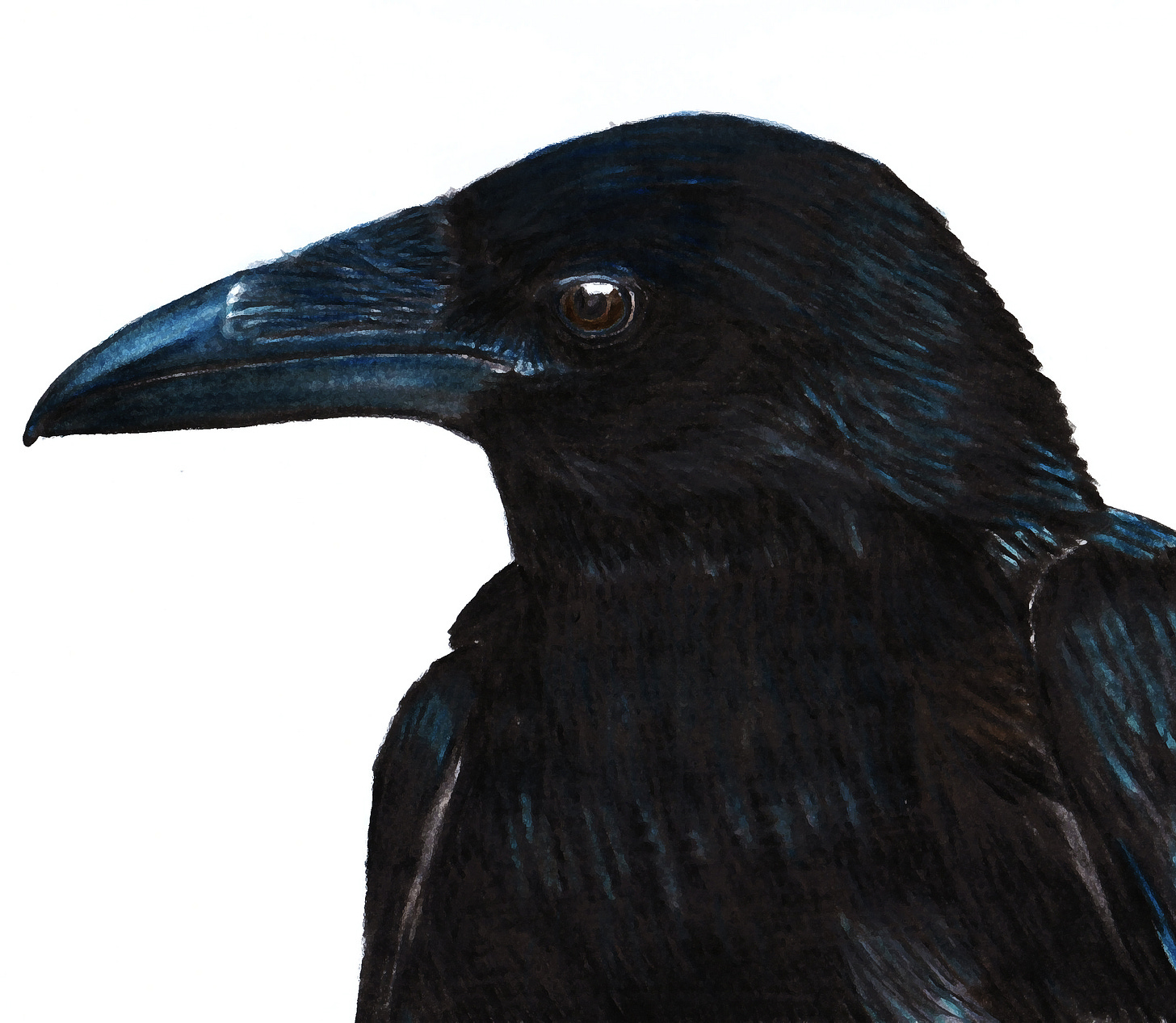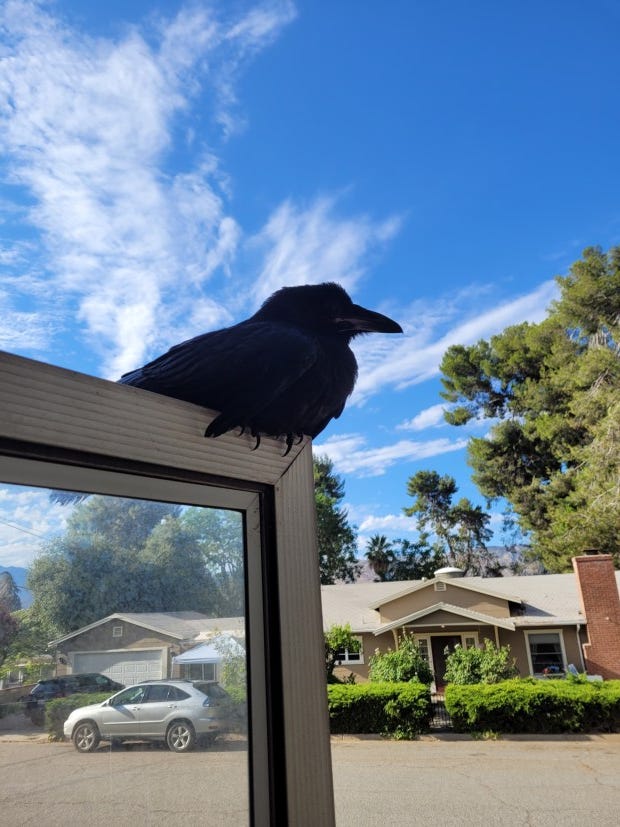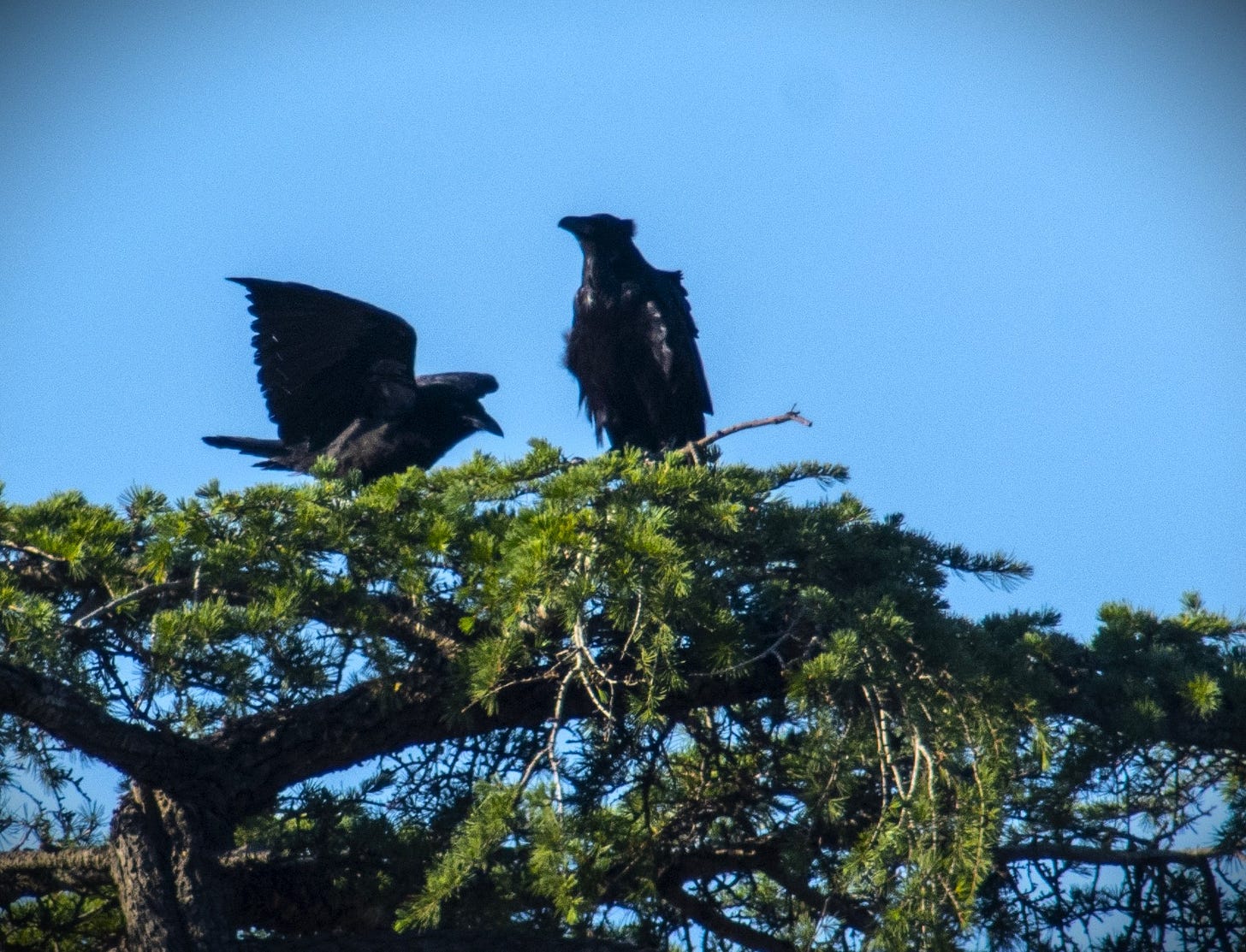The Stories We Tell Ourselves
Swearing ravens and unpaid babysitters
A few summers back, I stepped outside at dawn to the angry cries of two ravens. I was puzzled when I saw a cat with its tail tucked low, bolting away from my house. The ravens dove at it, pulling tufts of fur as it went. Then I saw the problem. There was a fledgling raven in my yard. It was feathered enough to fly but too weak to get off the ground.
I scooped up the raven, felt the sharp breastbone of a starving bird and sighed. I had worked in wildlife rehabilitation and as a zookeeper in my younger years. I told myself that I would see if I could get it through the night and then decide what to do.
Baelish, as the raven ended up being named, was settled into a dog crate on my screened-in porch. I am a falconer with a chest freezer stocked with meat meant for my hawks. I knew what to give him. After drinking copious amounts of water and enjoying a meal of thawed mice, bits of quail, and soaked dog food the raven perked up. He made it through the night and in the morning called back and forth to his parents who sat on the pole outside my house fretting.
I decided it would only be a few days before I could return him to his parents. Then for what ended up being over a week, I fed him, let him build up his flight skills and watched his parents keep close watch on our progress. They were not pleased. They were even less pleased when I set him on the open porch door, and he would not join them. Instead, he returned to the safety of his crate. Then the questions that led to stories started.
Who was I to the ravens? Was I a kidnapper or a helper? I was formally known as the red-headed woman who walked about with hawks on her glove. I knew one word in raven. I’m pretty sure it is a curse word that means “hawk!” In the past it was all they ever said to me. Now their language was varied in tones I had never heard before. When Baelish finally joined them, they scolded me when they saw me, but didn’t yell “hawk” at me anymore.
I could only tell the ravens who I was through my actions, and I told myself a story about who I wanted to be. I started asking myself questions about my place in the urban/wildlife interface of my yard and spun small tales on my Facebook page.
My mom once told me that I live my life like I’m telling myself a story. She is probably right, because I think that the stories we tell ourselves shapes who we become. I feel the most connected to the people and the places that I love when I am telling myself stories about nature. When I spend time outside seeking the questions that nature presents, I can feel the positive shift in my mental and physical health.
This should be no surprise. I work as the co-executive director for Rivers and Lands Conservancy in Riverside, and I have read many of the copious studies on the benefits of nature. I have read studies that quantify the mental and physical benefits of simply peering through a window at trees. I have read studies that argue time in nature is a basic human need.
At the conservancy we work hard to make sure our community has places to absorb these benefits. As a writer, I believe that nature is also the wellspring of the most important stories we tell ourselves and tell others.
My favorite works of narrative nonfiction do not try to explain the author to the world. Instead, the author tries to explain the world to themselves. When I write about nature I discover a world where I may not always be wanted, but one in which I belong.
The summer ended without my question answered. I still did not know who I was to the ravens. I watched them thrive together and Baelish moved on perhaps to make his own family. Some stories do not need their questions to be answered. The answers are left to the reader.
The next spring I spotted the ravens building a new nest right across the street in a pine just high enough for a perfect view into my porch and laughed. They successfully raised three chicks. This might have been because I threw thawed mice on the roof when the chicks awkwardly fledged. It might be because I helped the parents guard the one that fledged a few days too soon. It might be that I have my answer.






Wonderful story.
Thank you for sharing it.
Yes it is quite the dance this becoming,
for all of us.
The ravens are my favorites of the winged people. Yes they have their ways
and their pride.
Excellent, again!! Thanks!